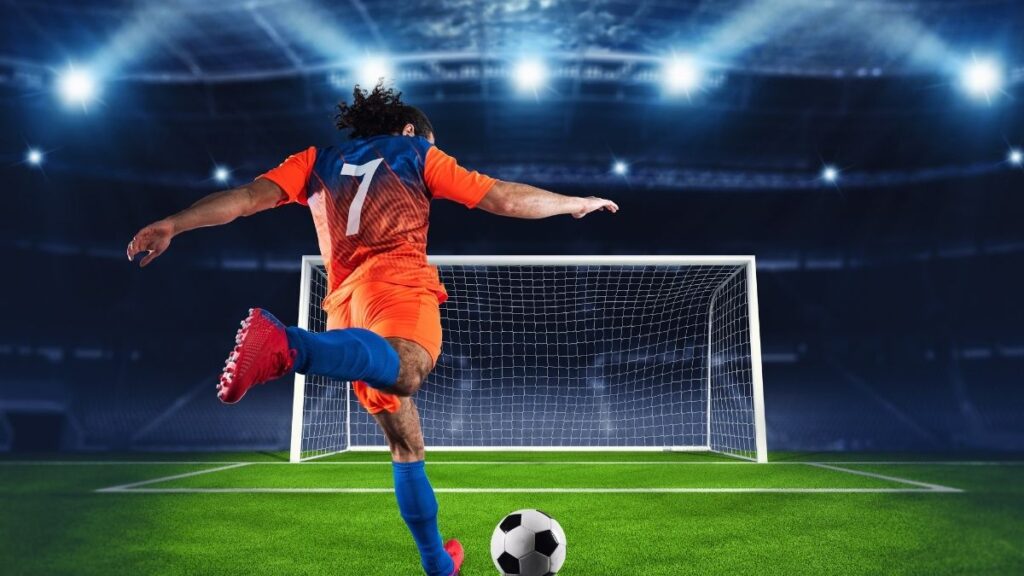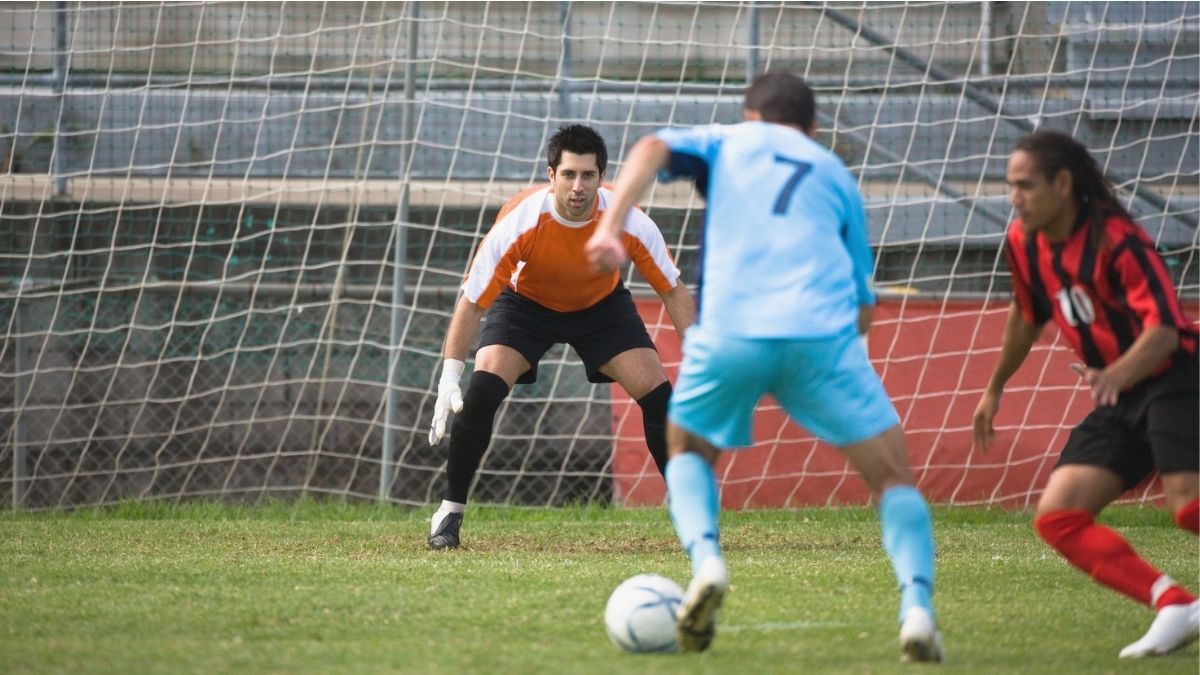Boost your betting experience and get up to $200 bonus right now!
The excitement is palpable as the FIFA U-20 World Cup 2025 prepares to launch in Chile, a vibrant footballing nation filled with passion and history. This tournament promises not just a display of youthful talent but also pulsating matches that can tilt the future landscape of world football. With 24 nations from six continents converging between September 27 and October 19, fans are gearing up for a rollercoaster of emotions — from stunning goals to last-gasp tackles, from emerging stars ready to shine under the global spotlight to underdogs itching to create upsets. Chile’s return as the host country marks a full-circle moment, coming back to the stage after nearly four decades, armed with four modern stadiums in key cities: Santiago, Valparaíso, Rancagua, and Talca.
The group stage will set the tone of the championship with a mix of historic heavyweights and fresh challengers vying for supremacy. Teams like Brazil, Argentina, Spain, and France bring not only tradition but marquee young talents backed by leagues and academies run by Adidas and Nike—the giants that drape these rising stars. Meanwhile, newcomers, drawing inspiration from sponsors such as Coca-Cola and Visa, have their eyes on changing the narrative and shaking the status quo. The stakes couldn’t be higher: spots in the knockout rounds, international recognition, and the chance to etch one’s name alongside legends.
As stadiums buzz with melodies like the official song “El Alma en la Cancha (Olé Olé Olé)” fueling the fiery local ambiance, fans and players alike will also witness the debut of the Football Video Support (FSV) system, a streamlined challenge solution that promises to usher in fair play without the usual VAR drama. Brands including Hyundai, Qatar Airways, and Budweiser bring their global reach into the tournament, enhancing its stature and spectacle. This preview offers a deep dive into the group stage setup, plus a breakdown of the must-watch clashes that will have everyone on the edge of their seats.
Sommaire
ToggleGroup Stage Dynamics: Teams, Format, and Stakes for the FIFA U-20 World Cup Chile 2025
The group stage of the FIFA U-20 World Cup involves 24 teams split into six groups of four, creating a cauldron of competition where every match could pivot a team’s fate. The groups are balanced by a seeded draw that took place in Santiago in late May, factoring in continental success and historical performance. Chile, as hosts, have the advantage of top seeding in Group A, playing on home soil in the iconic Estadio Nacional Julio Martínez Prádanos, a fortress where young local heroes will battle under intense scrutiny and passionate cheers.
Qualified teams hail from all six confederations, with notable diversity in experience and style. The breakdown is as follows:
- AFC (Asia): Australia, Japan, Saudi Arabia, South Korea
- CAF (Africa): Egypt, Morocco, Nigeria, South Africa
- CONCACAF: Cuba, Mexico, Panama, United States
- CONMEBOL: Argentina, Brazil, Chile, Colombia, Paraguay
- OFC (Oceania): New Caledonia (making their debut), New Zealand
- UEFA (Europe): France, Italy, Norway, Spain, Ukraine
Each group presents a distinctly different challenge. Take Group C, for instance. It’s a grinding ground featuring Brazil, Spain, Morocco, and Mexico. Brazil, chasing their sixth U-20 title, will lean on their trademark samba flair and steel forged by Nike sponsorship. Spain, adorned in Puma kits, are the tactical thinkers. Morocco’s talented squad, eager after a long absence since 2005, look to script a comeback story under the watchful eyes of global scouts following matches keenly watched by brands like McDonald’s and Gazprom. Mexico brings a punchy style energized by CONCACAF’s competitive edge.
The format itself ensures intense drama: the top two teams from every group progress, but crucially the four best third-placed teams across the six groups will also advance, making every goal and defensive stop invaluable. The points system is standard, but with fair play points and head-to-head results deeply influencing standings — a reminder that discipline on the pitch carries weight beyond style and skill.
| Group | Teams | Host Stadium |
|---|---|---|
| A | Chile, Egypt, Japan, New Zealand | Estadio Nacional Julio Martínez Prádanos, Santiago |
| B | Panama, Paraguay, South Korea, Ukraine | Estadio Elías Figueroa Brander, Valparaíso |
| C | Brazil, Mexico, Morocco, Spain | Estadio Nacional Julio Martínez Prádanos, Santiago |
| D | Argentina, Australia, Cuba, Italy | Estadio Elías Figueroa Brander, Valparaíso |
| E | France, New Caledonia, South Africa, United States | Estadio El Teniente, Rancagua |
| F | Colombia, Nigeria, Norway, Saudi Arabia | Estadio Fiscal de Talca, Talca |
The group stage’s diverse venues provide contrasting atmospheres: the large and imposing stadiums in Santiago and Valparaíso contrast with the more intimate and fiery settings of Talca and Rancagua. This offers a unique blend of environments that test team adaptability, especially for young players still mastering their nerves on the global stage.

Star Players and Rising Talents to Watch in the U-20 World Cup Group Stage
This tournament is often the stage where the next global icons carve their identity before the eyes of an eager footballing world. Even with 24 teams, two names stand out early in the tournament: Alejo Sarco, the top scorer as of late September, and Othmane Maamma, who dazzled at the U-20 Africa Cup of Nations with electric pace and dribbling wizardry. Both players symbolize a broader trend of dynamic forwards whose skill sets are being sharpened with modern training tools and international experience.
Other players attract attention because of their club affiliations with athletic powerhouses sponsored by Adidas and Nike while also benefiting from the sport’s commercial ecosystem powered by global partnerships with Budweiser, Hyundai, and Qatar Airways. These brands fuel training technology, player fitness programs, and scouting networks that feed into national youth systems. This tournament allows scouts from football clubs worldwide to identify hidden gems and future stars.
- Alejo Sarco (Chile): Already leading the scorer charts, Sarco embodies Chile’s hope to reclaim some international glory on home turf.
- Othmane Maamma (Morocco): His electric dribbling and speed are reminiscent of football legends who changed pace in tight spaces.
- Pedro Gonzalez (Spain): A midfielder renowned for precise passing and vision, perfectly suited to Spanish tiki-taka style.
- Lucas Fernandez (Argentina): Combining ball control with creative shot-making, Fernandez channels the legacy of Maradona and Messi.
- Emma Larson (USA): A defensive rock known for her tactical awareness and leadership despite being on a typically attack-minded team.
Brief yet striking moments in the group stage could catapult these players into the global football narrative. The audience can expect moments that break down conventional tactical setups—early goals with rapid transitions, tackles that redefine commitment, and dribbles that evoke standing ovations reminiscent of legends like Messi and Mbappé.
| Player | Team | Position | Goals Scored (as of 28 Sept) |
|---|---|---|---|
| Alejo Sarco | Chile | Forward | 2 |
| Othmane Maamma | Morocco | Forward | 1 |
| Pedro Gonzalez | Spain | Midfielder | 1 |
| Lucas Fernandez | Argentina | Attacking Midfielder | 1 |
| Emma Larson | USA | Defender | 1 |
Must-Watch Group Stage Matchups: Rivalries That Could Define Futures
Some games in the group stage have firing squads of history, talent, and future potential swirling around them. These matchups deliver more than just points; they’re dramatic narratives of ambition, pride, and redemption. For example:
- Spain vs Brazil (Group C): Clash of playing philosophies and generations — Spain’s refined tiki-taka against Brazil’s samba street football flair. This matchup not only thrills fans but also casts a spotlight on Nike and Puma’s footballing pipelines that nurture these countries’ prodigies.
- Argentina vs Italy (Group D): A duel steeped in football history, with tactical battles and flair, intensity underscored by Adidas gear and McDonald’s sponsorship buzzing around these football cultures.
- Chile vs Japan (Group A): Chilean passion versus disciplined technicality of Japan, hosted in Santiago under the watchful home crowd encouraging young local talents like Alejo Sarco.
- Morocco vs Spain (Group C): A José Mourinho-like tactician’s game, where defensive solidity vies against attacking creativity, spotlighting an intriguing African-European football connection.
- USA vs France (Group E): Athleticism meets tactical maturity — a contest high on physicality and strategic moves, intensified by global sponsors Hyundai and Gazprom energizing both players and fans.
These matches are more than just fixtures; they’re evolving stories told match-by-match. They shape confidence, influence player market values, and feed into national pride and scouting buzz. The tension around these duels often leads to key moments — last-minute saves, stunning free kicks, or breakthrough goals that could shape a player’s trajectory from obscurity to stardom.
Innovations and Influences: Technology and Sponsors Transforming the 2025 U-20 World Cup Experience
The 2025 edition of the FIFA U-20 World Cup isn’t just a tournament; it’s a showcase of modern football’s evolution on many fronts — from technology to commercial partnerships. For the first time in a men’s FIFA youth competition, Football Video Support (FSV) replaces the contentious VAR system. It’s designed to streamline decisions by focusing on clear, obvious errors and simplifying referee interventions without breaking the flow of the game. The impact is expected to be profound: faster, fairer matches that keep fans glued to the spectacle instead of VAR-related frustration.
Global sponsors such as Adidas, Nike, Coca-Cola, Visa, Hyundai, Qatar Airways, Budweiser, Puma, McDonald’s, and Gazprom don’t just fund the tournament — they influence its spirit and reach. For players, this means access to better gear, nutrition, and facilities; for fans, it means immersive entertainment options, fan zones, and community outreach programs that amplify engagement. These companies shape the broader football culture that infuses every goal celebration, every chant, and every narrative.
- FSV implementation: A new era of video assistance aiming at fair play and uninterrupted moments.
- Adidas & Nike’s role: Equipping many squads with cutting-edge kits and boots, blending technology and comfort for player performance.
- Fan engagement: Coca-Cola and Budweiser’s fan zones and event activations keep the atmosphere electric.
- Travel & logistics: Qatar Airways and Hyundai facilitating team travel and local mobility to ensure smooth tournament flow.
- Financial support & infrastructure: Visa and Gazprom’s investment in infrastructure upgrades and tournament marketing.
This confluence of sport, technology, and commerce puts the 2025 FIFA U-20 World Cup at the forefront of modern football tournaments, a preview of how the beautiful game will continue to evolve in seamless harmony with global innovations.
| Sponsor | Contribution | Area of Impact |
|---|---|---|
| Adidas | Kit and boots for many teams | Player performance and branding |
| Nike | Training gear and technology | Enhancing physical conditioning |
| Coca-Cola | Fan engagement zones and promotions | Atmosphere and fan interaction |
| Visa | Infrastructure investment and payment solutions | Operational efficiency and marketing |
| Hyundai | Transportation logistics | Team mobility and local travel |
| Qatar Airways | International travel support | Team and official transport |
| Budweiser | Event sponsorship and fan zones | Entertainment and atmosphere |
| Puma | Team kits and training wear | Player comfort and style |
| McDonald’s | Community engagement and nutrition programs | Player wellbeing and local outreach |
| Gazprom | Marketing and infrastructure support | Branding and tournament growth |

Building Momentum: Group Stage Schedule Highlights and How to Follow the Action
The group stage kicks off on September 27, spreading across four stadium hubs, with match schedules crafted to maximize viewer excitement and competitive balance. Key fixtures are distributed evenly across cities, making each location a vibrant nexus of football passion. The tournament immediately sets the stage for storylines that could last a lifetime.
One highlight is the very first match: Japan versus Egypt in Santiago’s Estadio Nacional — a curious contrast of styles and continents that sets a competitive tone. Meanwhile, Group C’s mouthwatering Spain vs Brazil game arrives in the first week, a game that’s a must-watch for anyone wanting a perfect blend of skill, speed, and tactical chess.
Fans are encouraged to keep track of match timings and group standings closely, since qualification scenarios weigh heavily on detailed tiebreakers including head-to-head results, goal difference, fair play points, and even draws of lots if needed. This is not just about winning matches; it’s about calculating every pass, every foul, and every shout from the bench.
- September 27–29: Opening matches across Groups A and B, featuring the hosts Chile and exciting debutants New Caledonia
- September 28–30: The inclusion of big names such as France, Brazil, Spain, and Argentina
- October 1–6: Intense run of fixtures as teams fight to secure their spots in the knockout rounds
- October 8–10: Round of 16 clashes begin, marking the end of the group stage drama
- October 12–20: Quarter-finals, semi-finals, and the thrilling final on October 19 at Santiago’s Estadio Nacional
For those wanting to immerse fully, streaming options and media coverage are widely available. Keeping an eye on platforms like the official FIFA website and specialist coverage can provide real-time analysis, player interviews, and tactical breakdowns, enriching the viewing experience. The tournament is also a spotlight for football stories around the world—such as those from Ukraine’s inspired youth teams (read more here), adding layers of human drama that transcend the pitch.
Join today and grab up to $200 bonus for your next bets!
Content assisted by AI. This article was created in whole or in part with the help of artificial intelligence.


